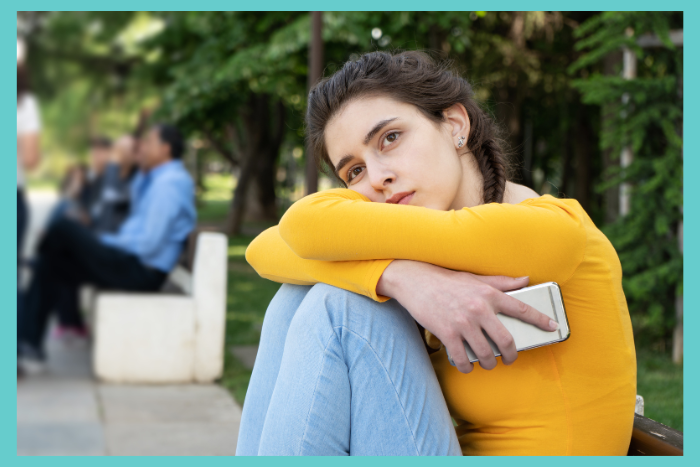Did you know that 1 in 7 adolescents ages 10 to 19 struggle with some form of mental health condition, according to the World Health Organization? The numbers are continuing to rise, and some experts are even calling it a teen mental health crisis. Common mental health challenges among adolescents include:
- Depression
- Behavioral issues
- Anxiety
- Eating disorders
- Risk-taking behaviors
- Suicide and self-harm
There are a few different ways that mental health conditions are treated. Individual psychotherapy is often the most helpful resource for people who need mental health support. However, psychoeducational groups have emerged as a proven valuable resource that works alongside traditional therapy.
These groups offer teens the opportunity to learn more about how to navigate their mental health challenges alongside other people who are dealing with similar conditions. We’ll explain what a psychoeducational group is and how it can benefit your teen on their mental health journey.
What is a psychoeducational group?
While one-on-one therapy typically focuses on the patient’s individual mental health needs, a psychoeducational group offers a chance for people with similar mental health challenges to gain knowledge together in a structured environment. Participants in a psychoeducational group act as a support network, acting as a sounding board and adding a level of peer accountability. Some topics a psychoeducational group may learn about include:
- The importance of having a supportive and caring social circle
- Self-care and why it’s needed for overall mental health
- Different medications and how they can help with certain mental health conditions
- Social skills that can prepare your teen for school, work and other social situations
- The importance of proper nutrition and taking care of one’s body
- How to develop stress management skills
- The value of proper sleep hygiene
- Different ways to manage time well
These are just some of the subjects a psychoeducational group may talk through during sessions. Psychoeducational groups are primarily focused on educating people on valuable mental health coping skills.
What are some benefits of a psychoeducational group?
While psychoeducational groups are a type of group therapy, there are some differences between them and regular support groups. Support groups can be helpful for many people. However, they’re less educationally structured and more focused on building relationships between participants.
Psychoeducational groups are designed to help support your teen as they learn how to handle their mental health challenges. Here are a few of the main benefits of psychoeducational groups:
- They’re education focused — Support groups are often focused on building relationships between participants and allowing the patients to guide the topics of discussion. Psychoeducational groups, however, are more structured and education based. It’s common to learn coping skills and other beneficial activities that patients can use in their everyday lives. Additionally, there’s usually a therapist as the group leader who can keep everyone on track with the group’s goals.
- They offer targeted care — Psychoeducational groups are often made up of people with the same or similar diagnoses. This can make it easier to focus on specific mental health topics that are helpful to the whole group rather than general principles. In a support group of people with all kinds of mental health challenges, it can be difficult to address everyone’s individual needs. However, when everyone in the group struggles with the same challenges, the group leader can focus on more practical and specific information based on the group’s needs.
- They provide peer interaction and support — Relationships between patients aren’t the main purpose of a psychoeducational group. However, it can be beneficial for participants to connect with other people who share the same diagnosis. It may be intimidating for people to share about or ask for help with their specific struggles in a standard support group. In a psychoeducational group made up of people with similar challenges, it can be easier to open up and, in turn, receive more effective care.
- They offer accountability — While psychoeducational groups are mostly focused on education, it’s also invaluable to learn alongside people who have similar mental health challenges. Other members of the group can offer understanding and support to your teen and help keep them accountable as they make progress.
Psychoeducational groups are a valuable resource for people with specific mental health needs. Could your teen benefit from additional education and support for their mental health challenges? A psychoeducational group may be a helpful addition for them.
At Embrace U, we offer psychoeducational groups as part of our outpatient treatment programs. Our complete treatment program combines a number of different mental health supports, such as:
- Group therapy
- Individual therapy
- Psychiatric assessment
- Family therapy
- Medication management
At Embrace U, our goal is to offer adolescents aged 10 to 18 the full mental health support they need. Our licensed clinical experts are ready to help you take that next step, so contact our team today for more information or to schedule an initial appointment.




